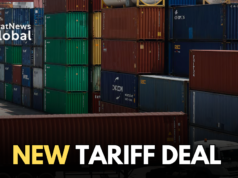Cellular modules are crucial to a modern economy. They are used in a vast array of industrial applications including energy, logistics, manufacturing, transport, health, security, and payment processing. At home, they feature in cars, smart meters, computers, electric vehicle chargers, and white goods. They monitor and control complex systems remotely.
To ensure that such systems run efficiently, they collect huge amounts of data and metadata for analysis, processing, and response management. They also deliver software updates to improve functionality. Worryingly, many Chinese companies such as QUECTEL, FIBOCOM, SUNSEA, NEOWAY, and MEIG have a monopoly in the international markets, including in India. By late 2022, Chinese companies held 64% of the global market (including the PRC) by sales, and 75% by connectivity.
If they achieve their aim of destroying other nations’ capability and securing a Chinese monopoly, free and open countries will face a triple threat, says Charles Parton, former British diplomat, now with the Council on Geostrategy and RUSI. Focusing on raising awareness of the Chinese threat, Parton says all the above-mentioned companies are nominally private companies. However, the People’s Republic of China’s (PRC) national security laws require all organisations and individuals to accede to requests from the security authorities which is a regular feature in China.
Beyond the dangers of dependency, attaining a monopoly over these ubiquitous cellular modules would allow the CCP wide-ranging opportunities to interfere in free countries. By sending instructions covertly in software updates, which are too numerous and frequent to monitor individually over the decade-plus lifetime of cellular modules, the CCP could take hostile action at a time of tension, warns Parton during this chat with Editor-in-Chief Nitin A. Gokhale for our weekly programme The Gist. Watch for more.
Nitin A. Gokhale is a media entrepreneur, one of South Asia's leading strategic affairs analyst and author of over a dozen books so far on military history, insurgencies and wars.
Starting his career in journalism in 1983, he has since led teams of journalists across media platforms.
A specialist in conflict coverage, Gokhale has covered the insurgencies in India’s North-East, the 1999 Kargil conflict and Sri Lanka’s Eelam War IV between 2006-2009.
Gokhale now travels across the globe to speak at seminars and conferences, and lecture at India’s premier defence colleges. He has founded three niche portals, Bharatshakti.in, stratnewsglobal.com and Interstellar.news.




